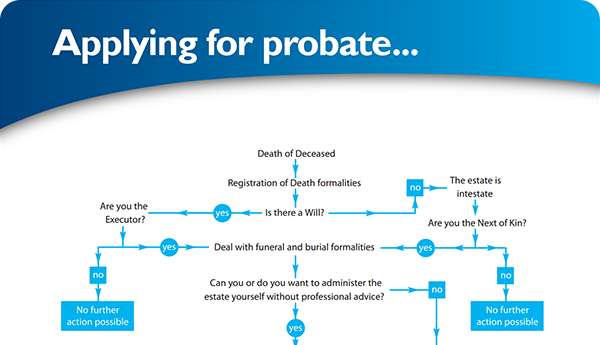Dealing with Grief When You Lose a Loved One - Probate Services Basildon

Dealing with Grief When You Lose a Loved One - Probate Services Basildon
Coping with the loss of someone you love is one of life’s biggest challenges. Often, the pain you’ll feel from this loss can just feel overwhelming. You’ll more than likely find yourself experiencing all kinds of difficult and unexpected emotions, from shock or anger to disbelief, guilt and profound sadness. Though, coping with this loss and getting through it can be a deeply personal experience. Everyone reacts differently when they are faced with this grief.
What is Grief?
Grief is a natural response to loss. It's a strong, sometimes overwhelming emotion for most, no matter where their sadness stems from. Individual experiences of grief vary and are influenced by the nature of the loss.
Everyone processes these strong emotions in many different ways, though here at the Probate Bureau we thought it might be helpful to take a look at ten ways to cope with grief and bereavement. Whilst this list is by no means exhaustive, it may be a good place to start, especially if you are finding yourself struggling.
-
Talk about it
One of the main ways to cope with grief is talking to someone you know well about how you’re currently feeling. Many often find that this helps to ease the grief and the pain they are feeling. Expressing yourself is an important means of processing events and acknowledging how much of an effect an individual had on you. Many people avoid, suppress or repress these feelings because they feel uncomfortable, not knowing that these feelings will only make them feel more uncomfortable in the future if not processed at the right time.
-
Understand that these are natural feelings
When grieving, it’s helpful that the strong emotions you’re experiencing are natural and not something to suppress or be concerned about. After the loss of a loved one, some people struggle with their grief, interpreting it as a weakness of character or as something to be ashamed of. However, this simply isn’t true. Those feelings that are grouped as grief – sadness, anger and betrayal, amongst others – are natural responses to bereavement and should be treated as such.
-
Eat well, keep up a good diet
Your diet has a huge impact on both your mental state and general health. When most people experience grief, they usually find that it affects their appetite, feeling as though they aren’t hungry. Though, changing it radically by eating unhealthy foods, consuming too much or not eating enough, can make coping with grief that bit more difficult.
-
Maintain your day to day routine
Keeping to your normal, day to day routine can have a calming and soothing effect on those suffering from grief as it allows one to begin resuming their own, normal life after experiencing this loss. If you let the grief interrupt your regular routine, it can easily encourage feelings of being adrift without direction or purpose.
-
Give yourself time, let yourself heal
The grieving process can vary in length from person to person, no one can predict how long it’ll really last. While some people will find themselves feeling better and leaving those emotions behind them within a matter of weeks, others can feel the effects with them for years. When it comes to coping with grief, it’s important that you’re patient and recognise that healing will take time and giving yourself this time to heal can contribute in a powerful way.
-
Don't let it disrupt your sleeping pattern
It’s normal to experience trouble sleeping after losing a loved one. Though, getting the right amount of sleep and keeping to your regular sleeping pattern is very helpful. Grieving can be draining, and emotionally and physically tiring process, so sleep plays a vital part in helping you cope.
-
Join a support group
For some, being with and speaking to others that are going through the same situation can be beneficial. Whilst they’re not for everyone, support groups can help you feel less alone and give you a forum in which to express yourself openly.
-
Exercise
While we often acknowledge that talking about your feelings can result in a rewarding emotional release, it’s also important to recognise the benefits many feel in a physical release. Regular exercise allows you to work out some of your internal thoughts and feelings in a purely physical manner and can stimulate the production of biological substances that can help you cope with your grief.
-
Take a visit to your GP
Finally, if you’re finding yourself struggling with the grief you’re currently experiencing and feel as though you need to talk to someone, it’s a very good idea to visit your GP. Your GP will help you in taking the first steps in processing the grief you’re feeling and can usually point you in the right direction of other services that may also be of assistance.
During this learning curve, do things that positively impact others, engage in meaningful and creative activities and make time for your self-reflection and self-care. Also, be sure to pay attention to your senses, enjoy the simple things will full attention and learn to discover new things in life and never lose hope. Many people have been in your situation and have been able to pass through it and you have the strength to do the same.
Our ethos here at The Probate Bureau
Here at the Probate Bureau, our main aim is to be able to save families time, money and stress in tough times. We are able to shoulder the whole burden of winding of winding up an estate from paying the funeral director to getting the final inland revenue clearance. We provide the best service at a very fair and reasonable fixed fee and we are able to administer most of our estates within 6 months by our highly efficient and qualified team led by our in-house lawyer.
Over the years we have found that people really do appreciate a free non-obligatory meeting in their own home where all their concerns and questions can be fully answered. We don’t have any paid consultants, nor do we pay out or receive any commissions from anyone. We are proud to be the longest running specialist estate administration firm in the UK, recommended by over 1000 independent funeral directors, so we have earned a high degree of trust allowing us to secure professional discounts – one which allows families to retain more money.
Please feel free to give us a call on 0808 256 2366 to check out what you should do, and most important shouldn’t do before you do anything else. The Probate Bureau – Professional, reliable probate service in Colchester.
Back To BlogShare This Post
Recent posts
- When Do You Need Probate & When Is It Required? By The Probate Bureau , 26/07/2023
- Losing a Loved One at Christmas By Probate Bureau , 16/12/2020
- Probate - Your Questions Answered By Probate Bureau , 01/09/2020
2015 Archive
2016 Archive
2018 Archive
2019 Archive
2020 Archive
0 Archive
- December 1 posts
2023 Archive
- July 8 posts
Blog Categories
Find your way through the probate maze
Click here to follow our step-by–step probate process guide
×



